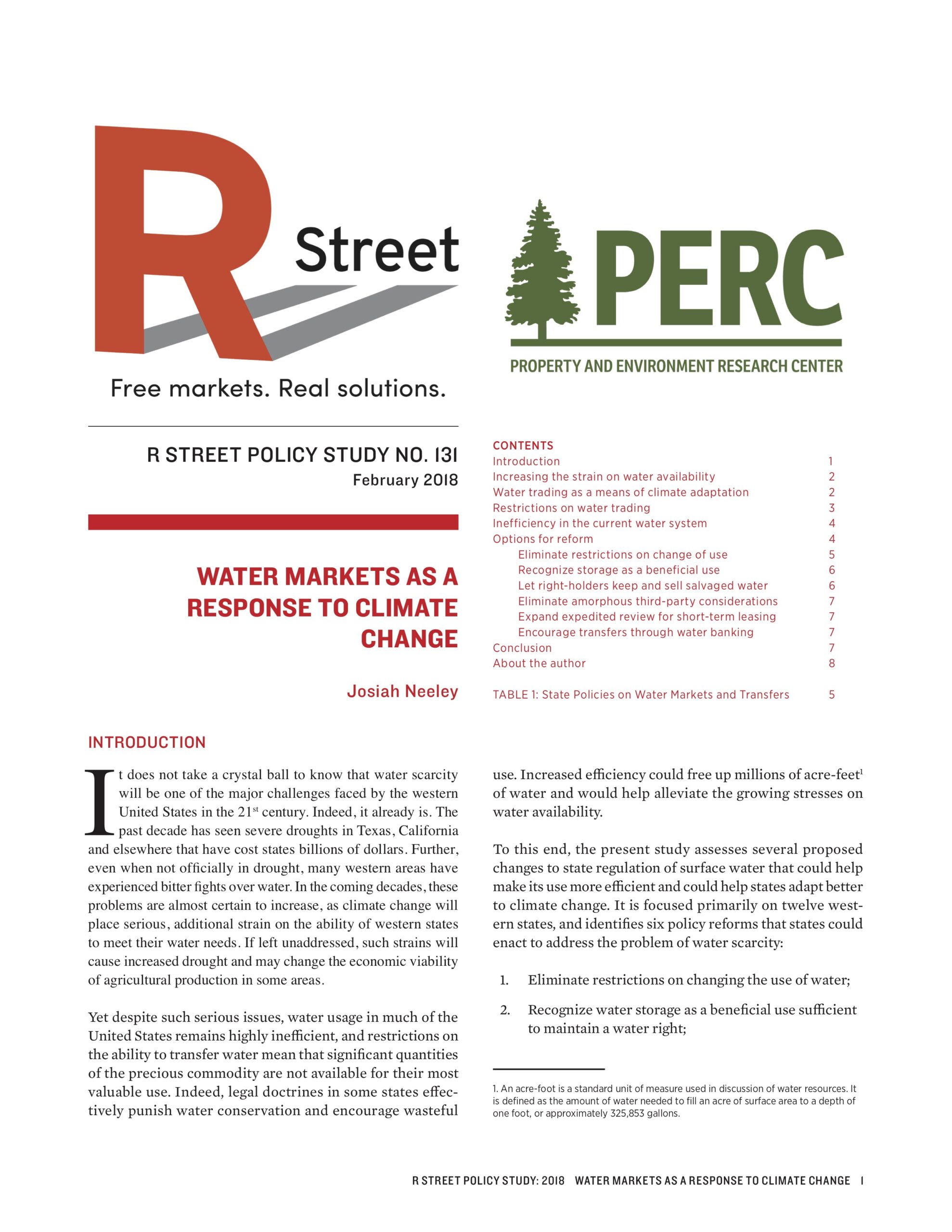 DOWNLOAD THE FULL REPORT
DOWNLOAD THE FULL REPORT
Introduction
It does not take a crystal ball to know that water scarcity will be one of the major challenges faced by the western United States in the 21st century. Indeed, it already is. The past decade has seen severe droughts in Texas, California and elsewhere that have cost states billions of dollars. Further, even when not officially in drought, many western areas have experienced bitter fights over water. In the coming decades, these problems are almost certain to increase, as climate change will place serious, additional strain on the ability of western states to meet their water needs. If left unaddressed, such strains will cause increased drought and may change the economic viability of agricultural production in some areas.
Yet despite such serious issues, water usage in much of the United States remains highly inefficient, and restrictions on the ability to transfer water mean that significant quantities of the precious commodity are not available for their most valuable use. Indeed, legal doctrines in some states effectively punish water conservation and encourage wasteful use. Increased efficiency could free up millions of acre-feet of water and would help alleviate the growing stresses on water availability.
To this end, the present study assesses several proposed changes to state regulation of surface water that could help make its use more efficient and could help states adapt better to climate change. It is focused primarily on twelve western states, and identifies six policy reforms that states could enact to address the problem of water scarcity:
1. Eliminate restrictions on changing the use of water;
2. Recognize water storage as a beneficial use sufficient to maintain a water right;
3. End “use-it-or-lose-it” doctrines that undermine incentives for rights holders to increase water efficiency;
4. Eliminate amorphous, non-environmental, third-party considerations from the approval process;
5. Create or expand an expedited approval process for short-term leases;
6. Use water banks to facilitate water transfers.
All of these proposed changes increase flexibility and use of water markets, which will be an important strategy to meet the challenges of climate change in the West.
This study was written during a visiting fellowship at PERC and is a collaboration with the R Street Institute, a free-market think tank advancing real solutions to complex public policy problems.
Download the full report, including endnotes and references.
 DOWNLOAD THE FULL REPORT
DOWNLOAD THE FULL REPORT


